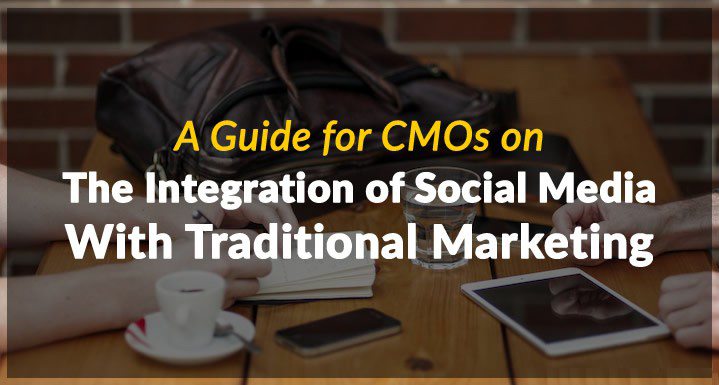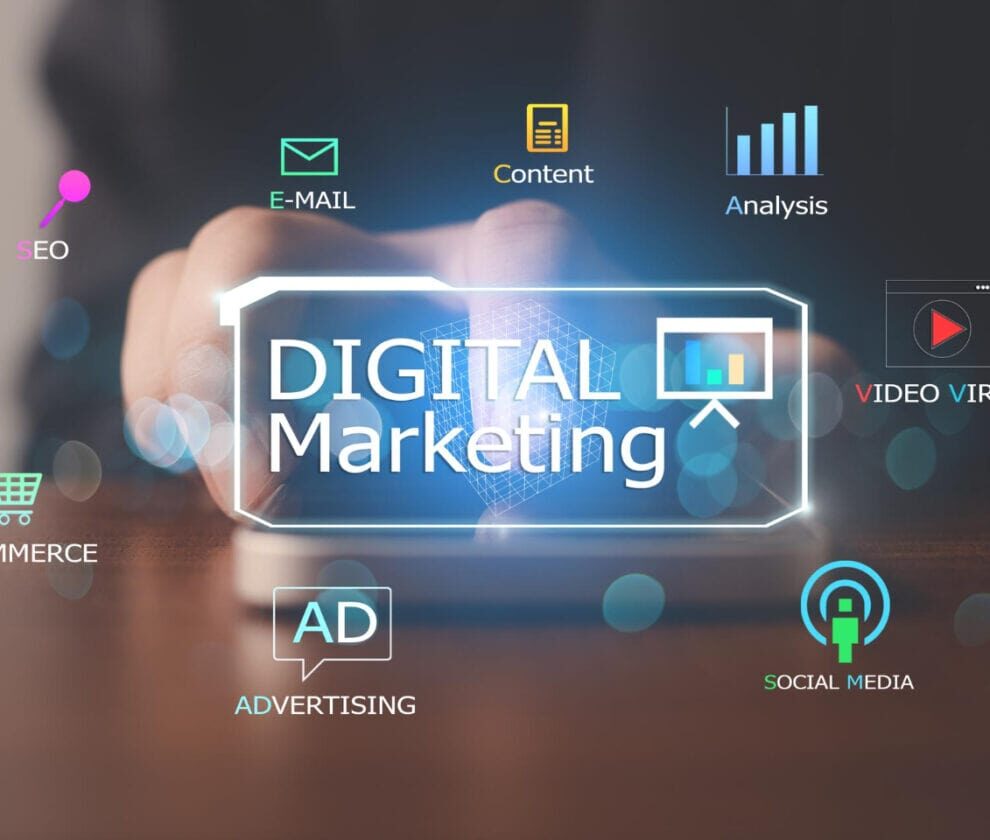
Digital transformation has shown us a new face of
marketing.
With the increased use of electronic gadgets and the IoT
(Internet of Things), the gap between businesses and customers
have reduced to a great extent. Finally, businesses realized
the importance of digital marketing and started hiring in-house
digital marketers.
Marketing mostly deals with the
advertisement and promotion of products. Marketers should make
a continuous search for the platforms where they can interact
with more people. In this context,
social media evolves as the next big advertising platform
after television and print media.
And in reality, it goes beyond them.
Social Media Marketing and Strategies
Nicholas Lamphere of Harvard University
defines social media as:
- “A media for interaction using
highly accessible and scalable publishing techniques.”
Social media acts as the nexus that connects around 2
billion netizens worldwide. It would seem that social
media is a treasure trove of potential customers.
Leveraging the social media networks for business is
called social media marketing.
If you are a blogger, you can
generate traffic for your business. A service or
product-based business can advertise and promote their services
and products. These are the ways that businesses can use social
media.
Your specific strategies, however, depend on the niche of
your business. There are
so many social media networks available. Each platform
allows marketers to function in different ways. So, you have to
determine which platforms serve you the best.
Social Media Integration in Business
Social media is the perfect place for:
- Brand promotion
- Lead generation
- Customer support
- Customer relations management
The number of social users increases rapidly as the
business invests more time and resources into social
media.
As per the recent reports of the CMO’s survey, the
social media spending of businesses is above
10%.
And it seems that spending may rise dramatically.
According to the report, the spending will see a 3%
rise in the next 12 months and will be
doubled in the next five years.
In the below infographics,
you can see the social spending of B2B in 2016:

In the below table, you can see the social spending of
B2B and B2C businesses:

If you observe the table, B2C services are
investing more on social media
marketing when compared to other businesses. This reason
is due to more exposure to their audience.
Well, the overall spending is in a healthy state.
But when they were surveyed about the
integration of social media marketing with their
current marketing strategies, the results are not as
encouraging. CMOs are still failing in implementing strong
social media strategies.
Here is the report of the CMO’s survey where they
inquired the chiefs of around 289 businesses in the US about
the integration of SMM strategies with their business.
They scaled up the answers from 1-7:
- 1 being not integrated.
- 7 being well-integrated.
- The mean level of the integration is 4.2.

As per the social media marketing industry
report (Michael A. Stelzner, 2016):
- 23% of social marketers strongly
agreed that they have integrated social media
strategies with their traditional marketing
strategies. - 58% marketers simply “agreed”.

- And 40% of marketers feel that SMM has become
harder than it was a year ago.

In such a case, social CMOs should hone
their strategies to get the best outcomes from social
media.
What should the CMOs do?
The younger
generations are more familiar with social media networks. A
junior employee can know more about social media sites when
compared to the CMO of the business. We can call the junior
staff digital natives.
Digital natives can create good business pages on various
social sites. Digital natives can make outstanding
content. But digital natives may not know the best marketing
route to get the desired effect. They need guidance.
It is an undeniable fact that marketing, be it
traditional or digital, deals with strategies. And this is why
a social CMO, whose primary responsibility is to make
strategies, is good for social marketing.
So the CMOs should keep three things in mind for better
social media outcomes:
1. Give a break to the figures
Most marketers are thinking about their social media
figures:
- Facebook likes
- YouTube views
- Twitter retweets
- +1s on Google Plus
- etc.
Of course, these figures are important. But they are not
the most important.
The count of people you have doesn’t matter as much as
what you do with those people.
Simply guide your digital natives around increasing the
amount of likes. They will take care of it.
Once you get those likes, you have to focus on how to
turn your social audience into your loyal customers.
2. Enhance the social skills of your staff
As a CMO, you are the driving force of your business’s
social media success. But you can’t do everything.
As said earlier, your junior staff are likely already
very active on social media. So nurture their skills with
proper training on how to use social media for
business.
There are many
social media management tools that can manage your
campaigns and
help in generating leads for your business. Train your
staff on using these tools effectively. Let them know how to
determine targeted users and make conversions.
This mix of strategy and social media skills can do
wonders for your business.
3. Measure performance
Now you have some great social media strategies and a
well-trained team. And you are making good campaigns on social
media. But how do you analyze your performance?
Different businesses have different goals in social media
marketing:
- Some marketers want to increase their brand
awareness. - Some want to generate leads.
- Some want to make more conversions.
As a CMO, you have to maintain a checklist of
what outcomes you want from your social media campaigns. We can
call the checklist points key performance
indicators (KPIs).
There are many such KPIs to help you check whether you
are making any difference in your marketing. Let’s have a look
at them:
Key Performance Indicators
1. Rise in engagement
As said above, different marketers need different things
from social media. Facebook likes matter for some marketers and
YouTube views matter for others.
The increase in each parameter indicates your
success.
If you are a retail marketer, measure CTR for your
content on social media and for your sponsored posts. A rise in
these parameters can indicate the increased visibility of your
business on social media.
If you want to use social media for CRM, measure the
feedback for the support you provide on Twitter and
Facebook.
2. Conversions
In terms of digital marketing, getting someone to perform
the desired action is known as a conversion.
In a social media context, getting a response from your
call-to-action is the conversion (a key performance
indicator).
For example, you want to increase registrations on your
website. You use the call-to-action ‘Register’ in your
campaigns. The number of registrations you get from the
campaigns is the measurement of your performance.
You have to measure two types of conversions:
- Conversions on your website.
- Conversions on social media.
You might want to try
different types of content on your website to attract your
users. Determine what kind of content gets you more conversions
and make more of that content.
On social media, you may have tried different kinds of
campaigns. Measure how much budget you have allocated for each
campaign and plan how you want to manage your budget depending
on each performance.
3. Sentiment analysis
As people are so expressive on social media, you can
easily measure the sentiment.
Knowing what the public is saying about your brand is a
very important thing.
As a CMO of a business, you are responsible for the
reputation of your brand. So, you have to know what your
users are thinking about your brand. There are many tools available that analyze
sentiment.
4. ROI
ROI is possibly the most important KPI.
When you are investing valuable time, money, and effort,
it is so important to make sure you are getting worthy returns.
As per the social media industry report:
- Only 41% of marketers said that they are
able to measure ROI. - 37% of marketers are still
uncertain.

But social media is not just for posting content and
getting likes.
It’s a great place for generating leads and driving more
traffic to your website. But this doesn’t happen so easily. It
costs you time, money, and resources.
You have to get the best possible outcomes from social
media. So, CMOs need to measure the social media ROI.
Conclusion
Awareness, targeting, and lead generation (the
trifecta of marketing), have become easier with
social media marketing.
As of now, there are around 2.35 billion social
media users in the world. And it is predicted that
there will be 3 billion by
2020.
Integrating social media marketing with your traditional
marketing strategies should become the most prioritized task of
CMOs. They should utilize their young talent and implement
potential strategies to make a prosperous business in today’s
digital era.
What are your thoughts on this article? Share your comments
below!
Did you like this post? Share it with your friends on
Facebook, Twitter, and Google Plus!
On – 30 Mar, 2017 By


